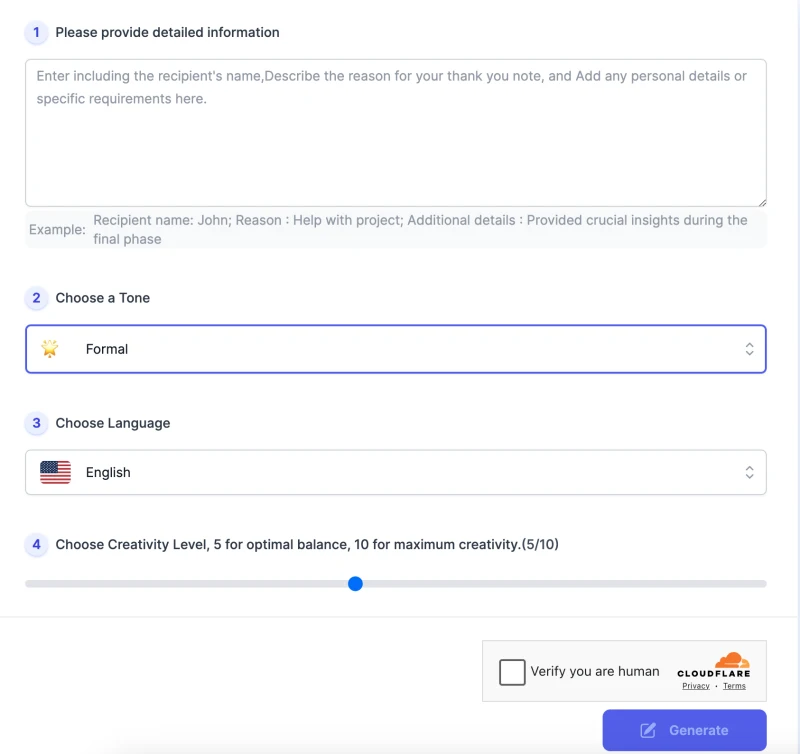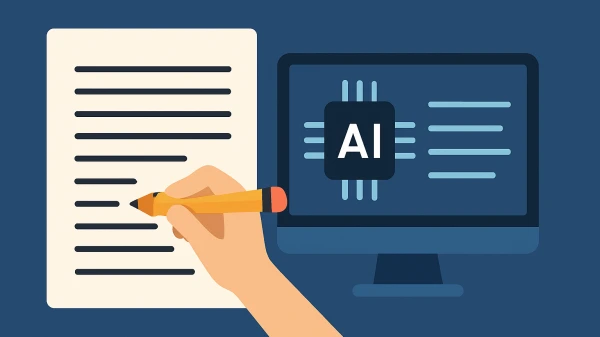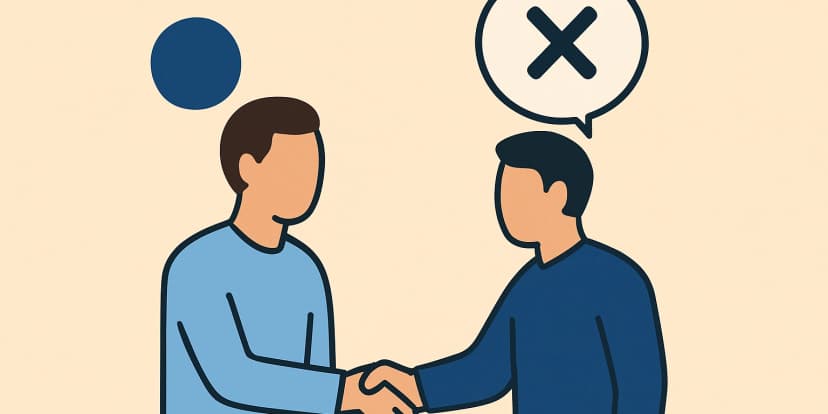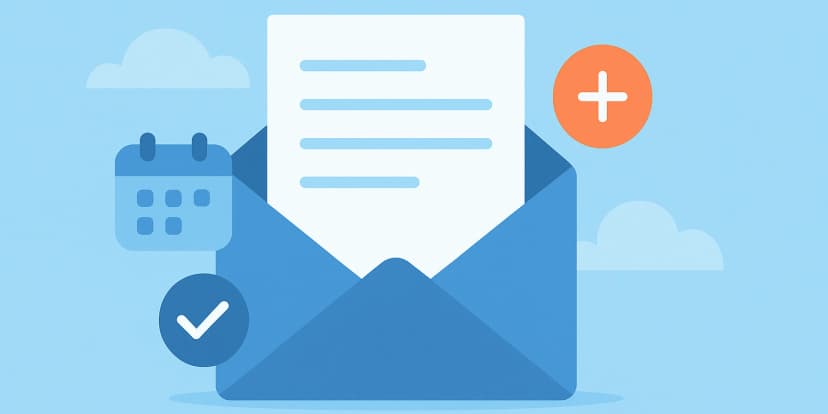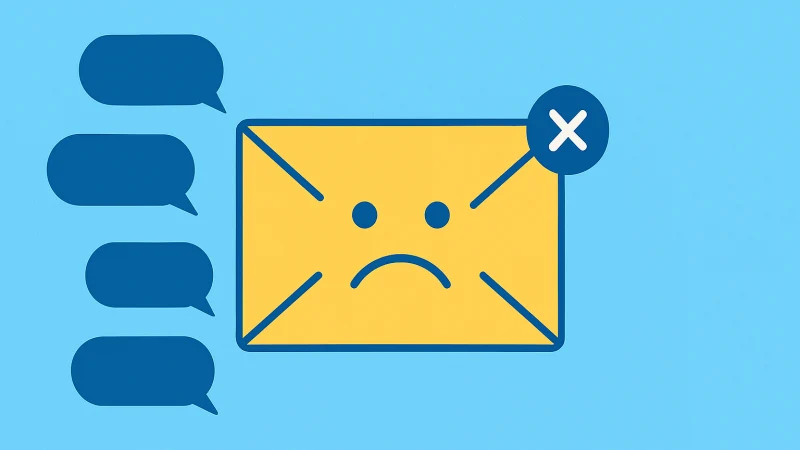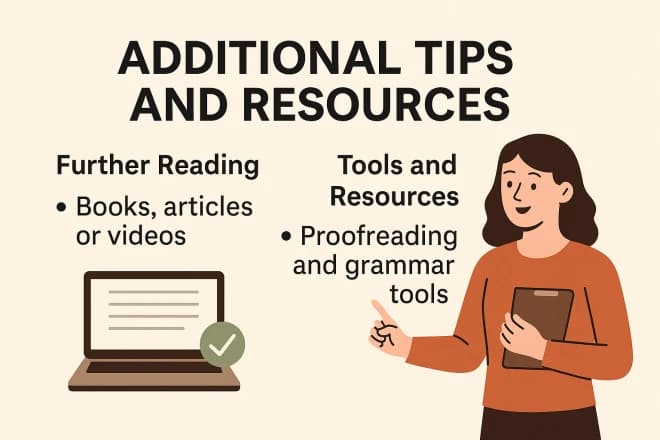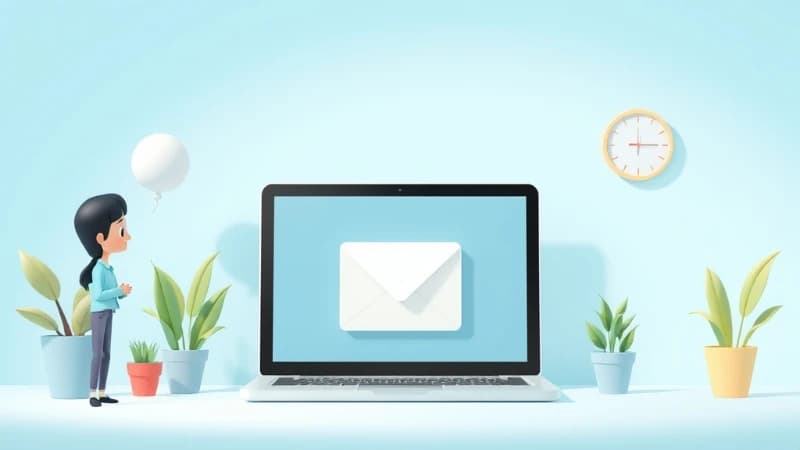Unlock Insights: Find the Answers You Seek on Our Blog
How to Write a Thank You Note After an Interview
By Evelyn Sterling
Sending a thank you note after an interview is a crucial step in the job search process. It not only shows your appreciation for the opportunity but also reinforces your interest in the position and helps you stand out from other candidates. Here’s a comprehensive guide to help you write an effective and professional thank you note.
Importance of a Thank You Note
A thank you note serves multiple important functions in the interview process:
- Demonstrates Professionalism: Sending a thank you note is a standard professional courtesy that showcases your manners and attention to detail. It reflects positively on your work ethic and character.
- Shows Appreciation: It expresses your gratitude to the interviewer for their time and consideration, highlighting your respect for the interview process and the interviewer’s efforts.
- Reiterates Interest: A thank you note provides an additional opportunity to reiterate your enthusiasm for the role and the company, reinforcing the positive impression you made during the interview.
- Sets You Apart: In a competitive job market, small gestures like a thank you note can set you apart from other candidates who may not take this extra step.
- Builds Relationships: It helps in building a rapport with your potential employer, which can be beneficial for future interactions and networking.
Benefits of Sending a Thank You Note After an Interview
- Enhances Your Candidacy: By reaffirming your interest and fit for the role, a thank you note can enhance your candidacy and make you a more memorable choice for the hiring manager.
- Clarifies and Adds Value: If there were any points you feel you didn’t fully address during the interview, the thank you note is an excellent place to clarify your answers and provide additional value.
- Strengthens Your Position: A well-crafted thank you note demonstrates strong communication skills and attention to detail, qualities that are highly valued in any role.
- Shows Commitment: Taking the time to write a thank you note shows your commitment to the job and the interview process, indicating that you are genuinely interested in the position.
- Leaves a Lasting Impression: A thoughtful thank you note leaves a lasting positive impression on the interviewer, which can be a deciding factor if they are choosing between several qualified candidates.
By understanding the importance and benefits of sending a thank you note, you can ensure that you leave a positive and lasting impression on your potential employer. This small yet significant gesture can play a pivotal role in advancing your candidacy and securing the job offer.
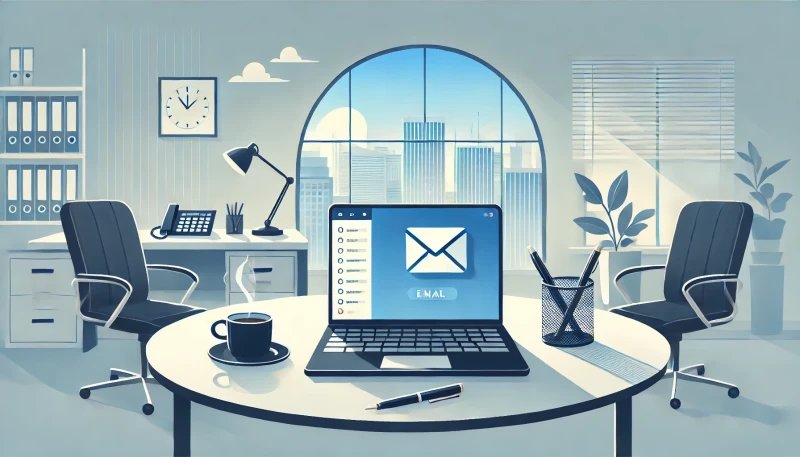
When to Send the Thank You Note
Optimal Timing
Timing is crucial when it comes to sending a thank you note after an interview. The optimal window for sending your note is within 24 hours of the interview. This promptness demonstrates your enthusiasm and professionalism while keeping you fresh in the interviewer’s mind. Here are some guidelines to help you with the timing:
- Same Day or Next Day: Ideally, send your thank you note on the same day or the day after your interview. This shows that you are proactive and considerate of the interviewer’s time.
- Consider Time Zones: If your interview was with someone in a different time zone, factor this into your timing to ensure your note arrives at an appropriate time.
- Follow-Up Interview: If you had a follow-up interview with multiple people, send individual thank you notes to each interviewer within 24 hours. Personalize each note to reflect your conversation with that particular person.
Methods of Sending (Email vs. Handwritten)
Choosing the right method to send your thank you note can also impact how it is received. Both email and handwritten notes have their advantages, and the best choice depends on the context of your interview and the company culture.
- Speed and Efficiency: Email is the fastest way to send a thank you note, ensuring it reaches the interviewer promptly. This is particularly important if the hiring decision will be made quickly.
- Common Practice: In many industries, email is the standard method for sending thank you notes, making it a safe and professional choice.
- Personalization and Professionalism: With email, you can still personalize your note and maintain a professional tone. Use a clear subject line, such as “Thank You for the Interview – [Your Name],” to ensure it gets noticed.
Handwritten Note
- Personal Touch: A handwritten note adds a personal and memorable touch, showing extra effort and thoughtfulness. It can be particularly effective in smaller companies or industries that value tradition and personal gestures.
- Lasting Impression: Because handwritten notes are less common, they can make a lasting impression and help you stand out.
- Delivery Time: Handwritten notes take longer to deliver, which can be a drawback if the hiring decision is imminent. To mitigate this, you might send a quick email first and follow up with a handwritten note.
Hybrid Approach
- Best of Both Worlds: In some cases, combining both methods can be beneficial. You can send a quick email immediately after the interview and follow up with a handwritten note. This approach ensures prompt communication while adding a personal touch.
By understanding the optimal timing and the pros and cons of each method, you can choose the best way to send your thank you note, ensuring it makes a positive impact and enhances your candidacy.
Key Components of a Thank You Note
Crafting a compelling thank you note involves several key components. Each part of the note should contribute to conveying your gratitude, reinforcing your interest, and leaving a positive impression. Here’s a breakdown of what to include in your thank you note:
Subject Line (for Email)
A clear and professional subject line is essential for email thank you notes. It ensures that your message is easily identifiable and stands out in the interviewer’s inbox. Examples include:
- “Thank You for the Interview – [Your Name]”
- “Grateful for the Opportunity – [Your Name]”
- “Appreciate Your Time and Insights – [Your Name]”
Greeting
Start your note with a polite and personalized greeting. Address the interviewer by their proper title and name. If you interviewed with multiple people, send individual notes and tailor the greeting for each person.
- Example: “Dear Mr. Smith,”
- Example: “Dear Dr. Johnson,”
Expressing Gratitude
Begin your note by expressing sincere gratitude for the interview opportunity. Mention the specific date or context of the interview to refresh the interviewer’s memory.
- Example: “Thank you very much for the opportunity to interview for the Marketing Manager position at ABC Corporation yesterday.”
- Example: “I appreciate the time you took to meet with me and discuss the Sales Associate role at XYZ Inc.”
Highlighting Key Points from the Interview
Mention specific topics or points discussed during the interview that stood out to you. This shows that you were attentive and engaged during the conversation.
- Example: “I particularly enjoyed learning about your team’s innovative approach to social media marketing and the upcoming projects you mentioned.”
- Example: “Our discussion about the company’s expansion plans and your insights into the team’s dynamics were truly enlightening.”
Reiterating Interest in the Position
Reaffirm your enthusiasm for the role and the company. Highlight how your skills and experiences make you a strong fit for the position.
- Example: “Our conversation has further solidified my interest in joining your team as a Marketing Manager. I am excited about the opportunity to contribute to ABC Corporation with my background in digital marketing and strategic planning.”
- Example: “I am very enthusiastic about the Sales Associate position and confident that my experience in customer relations and sales analytics aligns well with XYZ Inc.’s goals.”
Providing Additional Information or Clarification
If there were any points you feel you didn’t fully address during the interview, or if the interviewer requested additional information, use this section to provide that.
- Example: “I realized that I didn’t fully elaborate on my experience with project management software. I have extensive experience with tools like Asana and Trello, which I believe would be beneficial for the role.”
- Example: “Please let me know if you need any further information or references. I am happy to provide them.”
Closing and Contact Information
End your thank you note with a professional closing and include your contact information. This makes it easy for the interviewer to reach out to you.
- Example: “Thank you again for your time and consideration. I look forward to the possibility of working with you and your team. Sincerely, [Your Name] [Your Email Address] [Your Phone Number]”
- Example: “I appreciate your consideration and hope to discuss this exciting opportunity further. Best regards, [Your Name] [Your Email Address] [Your Phone Number]”
By incorporating these key components, you can ensure your thank you note is comprehensive, professional, and impactful, enhancing your chances of making a lasting positive impression.
Step-by-Step Guide to Writing a Thank You Note
Writing a thank you note after an interview involves several important steps. Follow this guide to ensure your note is professional, personalized, and impactful.
Step 1: Start with a Polite Greeting
Begin your thank you note with a polite and respectful greeting. Address the interviewer by their title and last name to maintain a professional tone.
- Example: “Dear Ms. Johnson,”
- Example: “Dear Mr. Smith,”
Step 2: Express Sincere Gratitude
Immediately express your gratitude for the opportunity to interview. Mention the specific date or context of the interview to help the interviewer recall your meeting.
- Example: “Thank you very much for the opportunity to interview for the Marketing Manager position at ABC Corporation yesterday.”
- Example: “I appreciate the time you took to meet with me and discuss the Sales Associate role at XYZ Inc. earlier today.”
Step 3: Mention Specifics from the Interview
Include details from your conversation that stood out to you. This demonstrates your attentiveness and genuine interest in the role and the company.
- Example: “I particularly enjoyed learning about your team’s innovative approach to social media marketing and the upcoming projects you mentioned.”
- Example: “Our discussion about the company’s expansion plans and your insights into the team’s dynamics were truly enlightening.”
Step 4: Reaffirm Your Interest and Fit for the Role
Reiterate your enthusiasm for the position and explain why you are a great fit for the role. Highlight your skills, experiences, and how they align with the company’s needs.
- Example: “Our conversation has further solidified my interest in joining your team as a Marketing Manager. I am excited about the opportunity to contribute to ABC Corporation with my background in digital marketing and strategic planning.”
- Example: “I am very enthusiastic about the Sales Associate position and confident that my experience in customer relations and sales analytics aligns well with XYZ Inc.’s goals.”
Step 5: Offer Additional Information if Necessary
If there were any points you feel you didn’t fully address during the interview, or if the interviewer requested additional information, provide that here. This shows your thoroughness and eagerness to assist further.
- Example: “I realized that I didn’t fully elaborate on my experience with project management software. I have extensive experience with tools like Asana and Trello, which I believe would be beneficial for the role.”
- Example: “Please let me know if you need any further information or references. I am happy to provide them.”
Step 6: End with a Professional Closing
Close your thank you note with a professional and courteous sign-off. Include your contact information to make it easy for the interviewer to reach out to you.
- Example: “Thank you again for your time and consideration. I look forward to the possibility of working with you and your team. Sincerely, [Your Name] [Your Email Address] [Your Phone Number]”
- Example: “I appreciate your consideration and hope to discuss this exciting opportunity further. Best regards, [Your Name] [Your Email Address] [Your Phone Number]”
By following these steps, you can craft a thank you note that is professional, thoughtful, and effective, reinforcing your interest in the role and making a positive impression on the interviewer.
Using AI Thank You Note Generator
What is an AI Thank You Note Generator?
An AI Thank You Note Generator is a tool that leverages artificial intelligence to help users quickly and efficiently craft personalized and professional thank you notes. By using natural language processing and machine learning algorithms, this tool can generate tailored messages based on the information provided by the user. It’s particularly useful for job seekers, professionals, and anyone needing to send a thoughtful thank you note without spending too much time on writing.
How to Use It
Here’s a step-by-step guide based on the provided interface:
- Provide Detailed Information:
In the input field, enter the recipient’s name, the reason for your thank you note, and any additional personal details or specific requirements.
Example: “Recipient name: John; Reason: Help with project; Additional details: Provided crucial insights during the final phase.” - Choose a Tone:
Select the tone of your thank you note. Common options include formal, informal, or friendly. For professional contexts like post-interview thank you notes, a formal tone is usually appropriate. - Choose Language:
Select the language in which you want your thank you note to be written. Ensure it matches the recipient’s preferred language for better impact. - Choose Creativity Level:
Adjust the creativity level slider to balance between optimal coherence and creative expression. A middle setting (around 5) typically ensures clarity with a touch of creativity. - Generate the Note:
Click the “Generate” button to create your thank you note. The AI will process your inputs and produce a customized message based on the details provided. - Review and Edit:
Once the thank you note is generated, review it for accuracy and make any necessary adjustments to ensure it fully captures your intended message. - Send the Note:
After finalizing the note, you can send it via email or print it for a handwritten version, depending on your preference and the context.
Benefits
Using an AI Thank You Note Generator offers several advantages:
- Time-Saving: Quickly generates a professional thank you note, saving you significant time and effort, especially useful when you need to send multiple notes.
- Personalization: Allows for easy customization, ensuring the note is tailored to the specifics of your interview or interaction, making it more meaningful to the recipient.
- Consistency: Ensures that your thank you notes maintain a high level of professionalism and clarity, which is crucial for making a positive impression.
- Reduced Stress: Simplifies the writing process, making it less daunting to craft a well-structured thank you note, particularly if writing is not your strong suit.
- Enhanced Professionalism: Helps produce a polished and articulate thank you note that reflects well on you as a candidate or professional, reinforcing your suitability for the position or strengthening your professional relationships.
By utilizing an AI Thank You Note Generator, you can efficiently create thoughtful and impactful thank you notes that leave a lasting positive impression on the recipient.
Sample Thank You Note
Crafting a well-written thank you note is essential for leaving a positive and lasting impression. Here’s an example of a professional and effective thank you note following an interview:
Example of a Well-Written Thank You Note
Subject: Thank You for the Interview – Jane Doe
Email Body:
Dear Mr. Smith,
Thank you very much for the opportunity to interview for the Marketing Manager position at ABC Corporation yesterday. I truly appreciated the time you took to discuss the role and the exciting projects your team is working on.
I particularly enjoyed learning about ABC Corporation’s innovative approach to digital marketing and the upcoming initiatives you have planned. Our conversation has further solidified my interest in joining your team and contributing to these projects. I am confident that my background in social media strategy and content creation aligns well with the needs of your team and the goals of the company.
During our discussion, I realized that I didn’t fully elaborate on my experience with project management software. I have extensive experience with tools like Asana and Trello, which I believe would be beneficial for the collaborative efforts your team is undertaking.
If you need any additional information or references, please do not hesitate to reach out. Thank you again for your time and consideration. I look forward to the possibility of working with you and contributing to the continued success of ABC Corporation.
Sincerely,
Jane Doe
jane.doe@email.com
(555) 123-4567
Common Mistakes to Avoid
When writing a thank you note after an interview, it’s essential to avoid common pitfalls that can diminish the effectiveness of your message. Here are some mistakes to watch out for:
Being Too Generic
A generic thank you note can come across as insincere and may not leave a memorable impression on the interviewer. Avoid using a one-size-fits-all template and instead personalize your note to reflect specific aspects of your interview.
- Example of a Generic Note: “Thank you for the interview. I enjoyed learning about the position. I look forward to hearing from you.”
- Better Approach: Mention specific topics discussed during the interview, express genuine enthusiasm for the role, and highlight how your skills align with the company’s needs.
Delaying Too Long
Timing is crucial when sending a thank you note. Waiting too long can make your note seem like an afterthought and reduce its impact. Aim to send your thank you note within 24 hours of the interview to show promptness and consideration.
- Example of Delayed Note: Sending a thank you note a week after the interview.
- Better Approach: Send your note on the same day or the day after the interview to demonstrate your enthusiasm and respect for the interviewer’s time.
Overloading with Too Much Information
While it’s important to provide relevant information and clarify any points, overloading your thank you note with too much detail can be overwhelming and distract from the main message. Keep your note concise and focused on key points.
- Example of Overloaded Note: Including a detailed recap of your entire resume or extensive information that wasn’t covered in the interview.
- Better Approach: Highlight a few key skills or experiences that are most relevant to the position and mention specific points from the interview that stood out.
Using Informal Language
A thank you note should maintain a professional tone. Using informal language or slang can undermine your professionalism and the impression you made during the interview.
- Example of Informal Language: “Hey, thanks for the chat. It was cool meeting you guys. Hope to join the team soon.”
- Better Approach: Use polite and formal language, addressing the interviewer appropriately and maintaining a respectful tone throughout the note.
By avoiding these common mistakes, you can ensure your thank you note is professional, impactful, and enhances your candidacy. Taking the time to craft a thoughtful and personalized note will leave a positive impression and reinforce your interest in the position.
Additional Tips for Crafting a Memorable Thank You Note
Crafting a memorable thank you note involves more than just following a basic structure. Here are some additional tips to make your note stand out:
Personalizing Your Message
Personalization is key to making your thank you note memorable and impactful. Tailor your message to reflect your specific interview experience and the conversation you had with the interviewer.
- Reference Specific Details: Mention something unique from your interview, such as a particular project, company value, or personal anecdote shared by the interviewer.
Example: “I appreciated your insights on the upcoming marketing campaign, and I’m excited about the prospect of contributing my experience in social media strategy to such innovative projects.” - Use the Interviewer’s Name: Address the interviewer by their name and mention other team members you met, if applicable.
Example: “Dear Ms. Johnson, I thoroughly enjoyed our conversation about the company’s future initiatives and meeting with your team members, John and Emily.”
Keeping It Concise and Clear
While it’s important to cover the key points, keeping your thank you note concise and to the point ensures it’s easy to read and leaves a strong impression.
- Stick to Key Messages: Focus on expressing gratitude, highlighting key points from the interview, and reaffirming your interest in the role.
Example: “Thank you for the opportunity to discuss the Marketing Manager position. I am particularly excited about the company’s innovative approach to digital marketing and believe my background in content creation would be a great fit.” - Avoid Redundancy: Ensure each sentence adds value to your message. Avoid repeating information that was already covered extensively during the interview.
Proofreading for Errors
A thank you note with errors can undermine your professionalism and attention to detail. Take the time to carefully proofread your message before sending it.
- Check for Grammar and Spelling: Use tools like spell check and grammar check, and read through your note multiple times to catch any mistakes.
Example: Ensure sentences like “I’m confidant that my skills align with the position” are corrected to “I’m confident that my skills align with the position.” - Verify Names and Titles: Double-check the spelling of the interviewer’s name, their title, and the company name to avoid embarrassing errors.
Example: Ensure you have correctly addressed the interviewer as “Ms. Johnson” instead of “Mrs. Johnson” if that is her correct title. - Read Aloud: Reading your note out loud can help you catch awkward phrasing and ensure it flows smoothly.
By personalizing your message, keeping it concise and clear, and thoroughly proofreading for errors, you can create a thank you note that is professional, thoughtful, and leaves a lasting positive impression. This attention to detail can significantly enhance your candidacy and strengthen your relationship with the potential employer.
Conclusion
Writing a thank you note after an interview is a small yet powerful gesture that can significantly impact your job search process. It demonstrates your professionalism, expresses your gratitude, and reinforces your interest in the position.
By taking the time to write and send a thoughtful thank you note, you not only express your appreciation but also enhance your chances of securing the job. This simple act of courtesy can set you apart from other candidates and leave a lasting positive impression on your potential employer. So, after your next interview, don’t forget to write that thank you note – it could be the key to landing your dream job.
AI Tools Categories
Browse all AI tools by category
All AI Tools
229Amazon
5AI Writing Generator
85Article & Content Writing
35Branding & Identity
54Content Generation
170Creative Ideas
32Educational Resources
34E-commerce
14Etsy
6Events & Celebrations
13Facebook
6Gaming & Fun
5Instagram
3Lifestyle & Personal
8LinkedIn
6Marketing & SEO
40Poem & Lyrics Writing
19Professional Documents
31Social Media
44Story & Book Writing
49Text Effects
14TikTok
7Twitter
3Writing Enhancement
36YouTube
11
Highly rated and most popular AI tools curated by our experts
Recently added AI tools that are gaining traction
- AI Post Generator

- AI Bullet Point Generator

- AI Discussion Post Generator

- AI 2 Weeks Notice Letter Generator

- AI Content Creation Ideas Generator

- AI Radio Ad Script Generator

- AI Podcast Script Generator

- AI Resume Objective Generator

- AI Resume Headline Generator

- AI Password Generator

- AI Snapchat Caption Generator

- AI Snapchat Username Generator

- AI Pinterest Board Name Generator

- AI LinkedIn Experience Description Generator

- AI Twitter Hashtag Generator

- AI YouTube Short Idea Generator

we prioritize displaying the latest content closely related to the current blog post.
